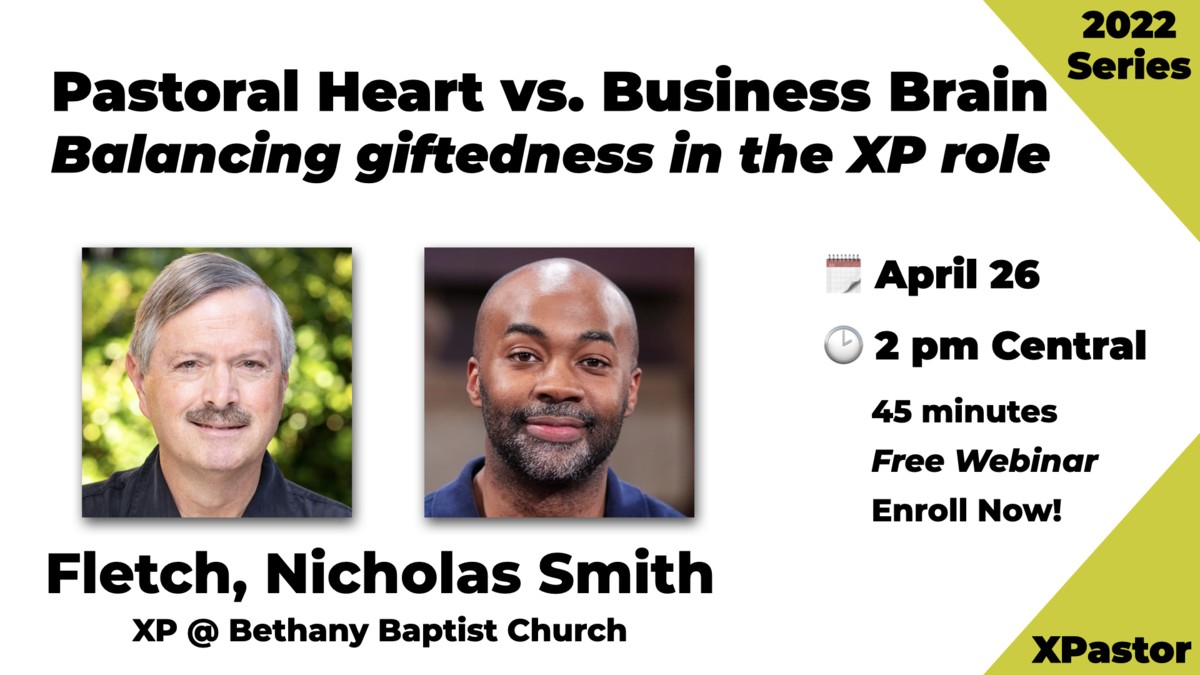Another solution, often in conjunction with the Associate Pastor role, is for the church to hire a Business Administrator. Minirth and others succinctly discuss this area, in the context of different hats that the pastor wears:
The Businessman Hat
If you are like most pastors, this is probably the hat you would most like to pack away in mothballs. If your church is fortunate enough to have a church administrator, you may think you can do exactly that.
Many ministers struggle with the challenge of overseeing the church staff.
The option of hiring a Business Administrator occurs as churches grow beyond the point that the preaching pastor and volunteers can manage the church office. Generally, the Business Administrator reports to the Senior Pastor, taking financial management off of the Senior Pastor, but adding supervisory oversight. The Business Administrator may oversee non-ministerial support staff.
Steven Breedlove, in his doctoral dissertation, saw the addition of a Business Manager as essential to the growth of Bethany Chapel:
The critical step that I can take to advance growth in administrative function is to pursue (through much prayer and discussion with the elders) the addition of a contract consultant for the next 9 months to help spearhead our efforts at organizational restructuring. The objective ‘outside consultant’ will have the opportunity to assist us in resolving much of the administrative dysfunction that we agree has developed over the years.
Breedlove gives concluding application to his doctoral work by stating:
I am committed to shifting the responsibility for overall church management from the Administration and Finance Committee to the pastoral and support staff so that the staff is able to solve its challenges, delegate its responsibilities, resolve its differences, come to unity and carry out its mandate for ministry.
And he continues, “Until an associate pastor of administration is present to shoulder the load, I must meet regularly with the office manager to support and strengthen him in his leadership and to provide resources for his task.” It has been difficult for some churches to decide whether the church needs a Business Manager or an Executive Pastor. The Executive Pastor Indicator, presented in chapter four, helps churches in this process. Until Breedlove gets assistance with managerial issues, he will have reduced hours each week for the pastoral disciplines.
Ken Godevenos recommends that, “Decide whether an Administrative Pastor or a true EP is required. The former administers day-to-day operations while the latter usually acts as the pilot who gets us to our destination.” Schaller weighs in on the role of the Business Administrator:
The larger the congregation, the greater the institutional pressure on the senior minister to place a higher priority on administration rather than on spending time with members in a pastoral role.
A widespread response to this pattern of institutional behavior is to employ a church business administrator in an effort to free the senior minister to spend more time on preaching, pastoral care, and other ministerial duties. Occasionally this response turns out to be a good solution to the problem.
In spite of Schaller’s dire warning, churches such as Oak Cliff Bible Fellowship, have successfully used the Assistant Pastor and Business Administrator model for many years. Wes Kiel adds to this subject from his research on Executive Pastors:
I believe that the gifts that make a person a good Business Manager are quite different than, even opposite from the gifts which make a good Executive Pastor. The Business Manager needs to be the kind of person who naturally keeps close control of everything under his/her jurisdiction while the ministry manager should encourage people to ‘go for it.’ Good Business Managers have an eye for detail while good Executive Pastors need to be able to see the ‘big picture.’ One Executive Pastor who had successfully moved from the position of church Business Manager said that he had to learn to shift from ‘tight control to light control.’
There is not necessarily an adversarial relationship between a Business Administrator and an Executive Pastor. Rather, the two positions vary by scope, gifting and function.
The issue returns to the historic importance of preaching in American churches and the desire to have Preaching Pastors spend significant time in prayer and study. With the Assistant Pastor and Business Administrator, the Senior Pastor has at least two people, and generally more, in direct reporting relationships. The Senior Pastor retains the executive function and is the Chief of Staff. The Senior Pastor has some relief from the tasks of church management, but not freedom from them. In these models, the Senior Pastor implements the vision and policy of the governing board.
View the footnotes and read the entire dissertation in PDF format: Dissertation











